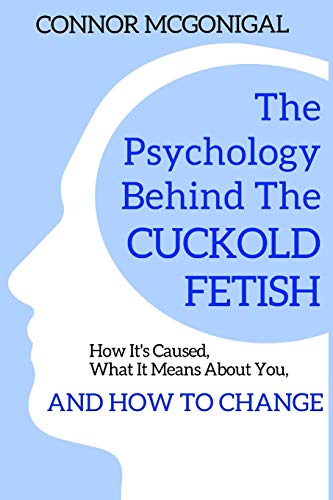Cuckoldry is a controversial topic that has been the subject of many discussions and debates in recent times. It is a situation in which a man’s wife or partner engages in sexual intercourse with another man while the man himself either consents to it or is unaware of it. The concept of cuckoldry has been around for centuries and has been portrayed in literature, art, and media.
However, the psychology behind why some men are drawn to or even enjoy the idea of their partners being with someone else is still not fully understood. The phenomenon of cuckoldry raises several questions about human sexuality, psychology, and relationships.
In this blog post, we will explore the psychology of cuckoldry, including the reasons why some men are drawn to this fetish, the impact it may have on their relationships, and how it can affect their mental health. We will also examine the role of power dynamics in cuckoldry and how they can influence the behavior of all parties involved.
Definition of Cuckold Psychology
Cuckold psychology studies the mental and emotional factors contributing to the cuckold experience. This practice explores the feelings of humiliation, jealousy, and compersion common in cuckoldry. It also examines the dynamics of the cuckold relationship, including the power imbalances and the role of communication.
Cuckold psychology is essential for those interested in exploring non-traditional sexual relationships. It means a framework for understanding the complex emotions and dynamics that can arise in these relationships and can help couples navigate the challenges of exploring this lifestyle.
Ultimately, the goal of cuckold psychology is to promote healthy and fulfilling relationships in all forms of sexual expression.
Common Characteristics of Cuckold Relationships
Cuckold relationships have been a topic of intrigue for centuries, and a specific set of traits characterizes them. One of the most common traits is the presence of a dominant partner who enjoys watching their mate engage in sexual activity with somebody else.
Additionally, the cuckold relationship typically involves a power dynamic where the dominant partner controls the submissive partner. The submissive partner may be humiliated or degraded during sexual encounters, reinforcing the power dynamic.
Trust and communication are also essential in these relationships, as the dominant partner must be able to trust their submissive partner to follow their commands.
Cuckolding relationships require trust, communication, respect, and a willingness to explore unconventional sexual practices.
7 Benefits of Cuckold Relationships
Cuckold relationships, where a man consents to his partner having sexual relations with others, have received increased attention in recent years. While these arrangements may seem unorthodox, several benefits can arise from cuckolding.
First, it can promote open communication and honesty within the relationship.
Second, it can increase sexual satisfaction for all parties involved.
Third, it can challenge traditional gender roles and power dynamics.
Fourth, it can lead to improved intimacy and trust.
Fifth, it can enhance the emotional bond between partners.
Sixth, it can provide a safe space for exploration and experimentation.
Finally, it can foster a sense of community among like-minded individuals. While not for everyone, cuckolding can provide a fulfilling and enriching relationship dynamic.
Challenges of Cuckold Relationships
Cuckold relationships, where a man watches his partner engage in sexual activity with another man, can pose various challenges for those involved.
The first challenge is the potential for jealousy and insecurity, as the cuckold may feel inferior or inadequate compared to the other man.
Additionally, communication is crucial in these relationships, as both parties must have transparent and honest conversations about their boundaries and desires. Trust must also be established, as the cuckold must have faith that their partner will not develop emotional attachments to the other man.
Other challenges may include navigating power dynamics, addressing societal stigmas, and ensuring that all parties involved are consenting and comfortable.
Helpful Resources for Cuckolds and their Partners
For individuals in a cuckold relationship, several helpful resources are available to support their unique dynamic. Online forums, such as the Cuckold Marriage Info website, provide a community for individuals to connect and share their experiences.
Additionally, books such as “The Cuckold’s Guide to Good Manners” by Lionel Maximilien or “The Dominant Hotwife: Taking Everything from her cuckold” by Alexandra Noir can offer guidance and education on navigating the complexities of a cuckold relationship.
It’s crucial for partners in these relationships also to seek counseling or therapy if needed, as communication and trust are essential components. These resources can provide valuable support and understanding for couples exploring the cuckold lifestyle.
Conclusion
In conclusion, the psychology of cuckoldry is complex and multifaceted. It involves a combination of sexual desire, power dynamics, and emotional needs. While it may seem unconventional or even controversial to some, it is vital to recognize that consensual sexual practices that do not harm others are valid and should be respected. It is also crucial for those interested in exploring cuckoldry to communicate openly and honestly with their partners and to establish clear boundaries and expectations. By doing so, individuals can engage in this practice safely, healthily, and fulfilling.
Last update on 2026-02-15 / Affiliate links / Images from Amazon Product Advertising API


